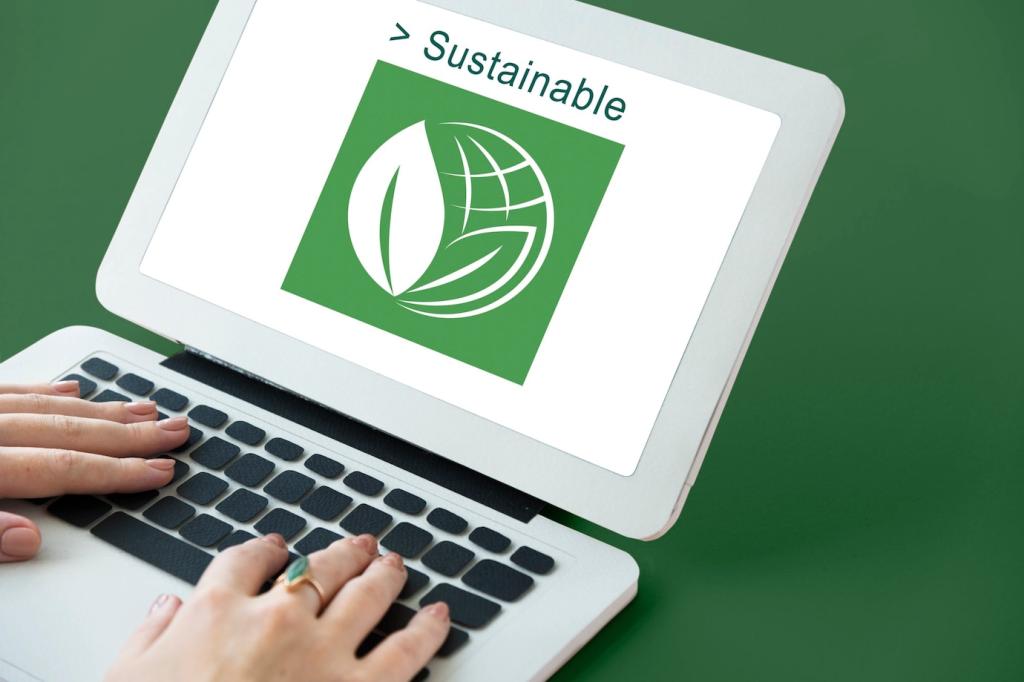Clean Energy-Powered Websites
Clean energy-powered websites represent a forward-thinking approach to web hosting, embracing environmentally responsible energy sources such as solar, wind, and hydropower to keep servers running. As awareness of global climate change and energy consumption grows, both businesses and individuals are seeking sustainable alternatives in every aspect of their online presence. Clean energy hosting solutions not only reduce carbon emissions but also enhance corporate responsibility, setting a benchmark for a greener internet and a more sustainable digital future.
The Importance of Sustainability in Web Hosting

Environmental Impact of Traditional Hosting
Traditional web hosting relies heavily on non-renewable energy sources, contributing to greenhouse gas emissions and environmental degradation. Vast server farms consume enormous amounts of electricity, generating heat and requiring powerful cooling systems, thus compounding their ecological footprint. This unsustainable model underscores the necessity for a shift to clean, renewable energy sources that can sustain digital infrastructure with minimal environmental cost.

Corporate Social Responsibility and Reputation
Businesses adopting clean energy-powered websites send a clear message to their customers and stakeholders: they take environmental responsibility seriously. This proactive stance not only addresses climate concerns but also enhances a company’s public image. Companies that lead the way in digital sustainability often gain a reputational advantage, fostering loyalty and trust among increasingly eco-conscious consumers, partners, and employees.

Compliance and Future-Proofing
The landscape of environmental regulations is rapidly evolving, with increasing global pressures to curb emissions in all industries. Switching to clean energy-powered web hosting prepares organizations for future compliance requirements. By adopting sustainable practices early, businesses can avoid the costly downfalls of reactive adaptation and position themselves as leaders in an ecologically conscious market.
How Clean Energy Powers the Web
Renewable Energy Technologies in Data Centers
Data centers are the backbone of the internet and have traditionally been energy-intensive operations. However, many are now powered by solar panels, wind farms, or hydropower facilities, directly supplying servers with green electricity. Some web hosts even use energy storage solutions to balance supply, ensuring uninterrupted performance while maintaining a low carbon footprint. This shift significantly mitigates emissions and helps decouple digital growth from environmental harm.
Energy Purchase Agreements and Offsetting
To supplement or ensure a consistent renewable electricity supply, many hosting providers enter into long-term energy purchase agreements with clean energy producers. These contracts guarantee a portion or all of their operations are powered by certified renewable sources. Additionally, some hosts invest in offset initiatives, such as funding reforestation or carbon credit projects, further compensating for any remaining emissions and reinforcing their environmental commitment.
The Role of Efficient Infrastructure
Merely switching to renewable energy is not enough; efficiency plays a pivotal role in reducing overall energy requirements. Advanced server hardware, intelligent cooling systems, and resource-optimized software all contribute to more sustainable web hosting. Leaner infrastructure not only draws less power, whether clean or not, but also maximizes the impact of every watt invested in digital operations, setting a standard for responsible energy use across the web.

Embracing renewable energy for website hosting positions a business at the forefront of environmental stewardship, setting it apart in a crowded market. Customers are increasingly making purchasing decisions based on a company’s values and sustainability initiatives. By promoting clean energy credentials, businesses can attract environmentally conscious consumers and generate positive press, solidifying their standing as innovative and ethical brands.

While the transition to clean energy infrastructure often requires initial investment, it can yield substantial cost benefits over time. Renewable sources such as solar or wind frequently provide more stable and predictable energy prices, insulating businesses from fossil fuel market volatility. Over the long term, reduced energy consumption and sustainable hosting can lead to lower operational costs, particularly as green technologies become more accessible and affordable.

Green hosting providers typically invest in the latest technology to maximize energy efficiency and uptime. This commitment translates into robust, reliable website performance for end users, with fewer disruptions and faster page loads. Leveraging sustainable infrastructure often means prioritizing innovation, giving both businesses and website visitors an improved digital experience along with the satisfaction of supporting environmentally responsible operations.
Join our mailing list
